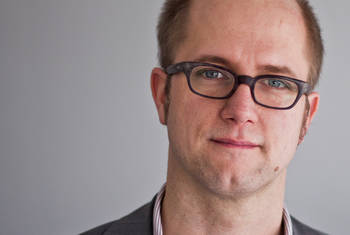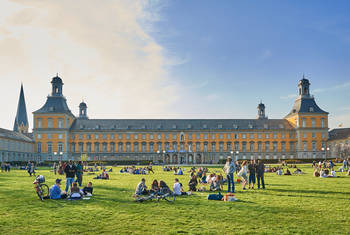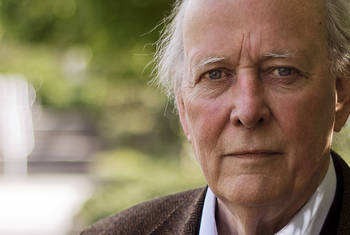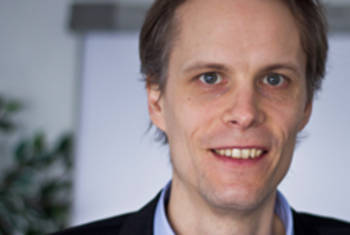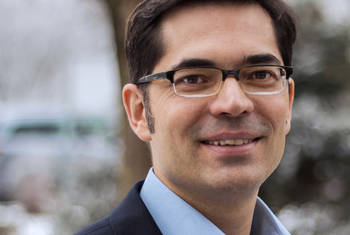Hendrik Hakenes Should Governments Have Their Own Banks?
Hendrik Hakenes is Professor of Finance at the University of Bonn. Having completed his PhD at the University of Münster, Hakenes has also held research positions at the Max Planck Institute for Research on Collective Goods, the University of Minnesota and Leibniz University Hannover. Hakenes’s research focuses on banking and finance and industrial economics. An editor for Credit and Capital Markets, since 2018 Hakenes has been principal investigator on a special research project based at the University of Mannheim: “Economic Perspectives on Societal Challenges: Equality of Opportunity, Market Regulation, and Financial Stability”.
Area of Research
Finance
since 2011
Professor of Finance
University of Bonn (Rheinische Friedrich-Wilhelms-Universität Bonn) (more details)
2008-2013
Director
of the “Hannover Center of Finance”
2007-2011
Professor of Economics
University of Hanover (Leibniz Universität Hannover)
Especially Financial Economics
2007
Guest Researcher
University of Mannheim (Universität Mannheim)
2005-2006
Visiting Postdoctoral Fellow
University of Minnesota
Finance Department of the Carlson School of Management
2005
Guest Researcher
Deutsche Bundesbank, Frankfurt a.M.
2004-2007
Senior Research Fellow
Max Planck Society
Max Planck Institute for Research on Collective Goods
2002-2004
Postdoctoral Researcher
University of Mannheim (Universität Mannheim)
Department of Economics, Chair Prof. Martin Hellwig
1998-2002
Doctoral Student and Junior Research Fellow
University of Münster (Westfälische Wilhelms-Universität Münster)
Department of Banking, Prof. Dr. Andreas Pfingsten
2001
PhD in Economics
University of Münster (Westfälische Wilhelms-Universität Münster)
Thesis “Banks as Delegated Risk Managers.”
1998
Diploma in Mathematics
University of Bonn (Rheinische Friedrich-Wilhelms-Universität Bonn) (more details)
Thesis “Parametric Interpolation by Third Degree Polynomial Curves”
- CESifo Economic Studies
- Credit and Banking
- European Economic Review
- Journal of the European Economic Association
- Finance Research Letters
- Finnish Economic Papers
- German Economic Review
- International Economic Review
- Journal of Banking and Finance
- Journal of the European Economic Association
- Journal of Financial Intermediation
- Journal of Institutional and Theoretical Economics
- Journal of Money
- Kredit und Kapital
- Rand Journal of Economics
- Review of Finance
- Review of Economic Studies
- Schmalenbach Business Review
- Zeitschrift für Betriebswirtschaftslehre
- American Economic Association (AEA)
- European Economic Association (EEA)
- German Economic Association (VfS, especially the committee for industrial economics)
- German Academic Association for Business Research (VHB)
- German Finance Association (DGF)
- German Economic Asociation for Business Administration (GEABA)
 © University of Bonn
© University of Bonn

University of Bonn (Rheinische Friedrich-Wilhelms-Universität Bonn)
Bonn is one of the large universities in Germany, with around 36,000 students, 550 professors, 6,500 other staff staff. It offers a wide disciplinary spectrum comprising some 200 different degree programmes, from Agricultural Science to Tibetan Studies. This diversity is what characterizes Bonn as a full-range university with a strong international orientation. In many international university rankings Bonn is placed among the 100 best universities in the world.Its academic and research profile features internationally renowned specializations in the fields of Mathematics, Physics/Astronomy, Economics, Chemistry, Pharma Research, Biosciences, Genetic Medicine, Neurosciences and Philosophy/Ethics. Other disciplines, such as Geography and Law, are of outstanding importance within the German research scene.
The Rheinische Friedrich-Wilhelms-Universität Bonn is rooted in a long tradition going back almost 200 years. It was founded in 1818 by Friedrich-Wilhelm III, the Prussian king whose name it bears. Imbued with the spirit of Wilhelm von Humboldt, the university quickly joined the circle of Germany's most distinguished universities and became a major pole of attraction for leading scholars as well as students.The list of famous professors ranges from the astronomer Friedrich Wilhelm Argelander (1799-1875), through the chemist August Kekulé von Stradonitz (1829–1896) and political economist Josef Schumpeter (1883–1950) to the philologist Ernst Robert Curtius (1886–1956) and the theologists Karl Barth (1886–1968) and Joseph Ratzinger (born 1927), now Pope Benedict XVI. Bonn's best-known students include Heinrich Heine, Karl Marx, Friedrich Nietzsche, and Konrad Adenauer.
The university is proud of a long list of award-winning scientists and scholars, with about twenty Leibniz Prize winners and around thirty ERC grantees. In the last three decades two professors have received the Nobel Prize: Wolfgang Paul (for Physics, 1989) and Reinhard Selten (for Economics, 1994). (Source: University of Bonn)
Institute
The Collaborative Research Center (CRC) TR 224 – EPoS
The Collaborative Research Center (CRC) TR 224 – EPoS is a cooperation between the University of Bonn and the University of Mannheim. Funded by the German Research Foundation (DFG), it aims to analyze and provide policy proposals that address three key societal challenges: how to promote equality of opportunity; how to regulate markets in light of the internationalization and digitalization of economic activity; and how to safeguard the stability of the financial system.
Map
The model presented in this video is designed to compare different options for the relation between banks and the public sector and different types of subsidies regarding their effects on social welfare. Comparing five options for interlinkage shows that the best choice often are development banks, if they are not allowed to compete with the private banking sector. In this case firms that would not get money from private banks are granted state aid, HENDRIK HAKENES explains, and the private banking sector is not endangered.
LT Video Publication DOI: https://doi.org/10.21036/LTPUB10024
The Politician and His Banker-How to Efficiently Grant State Aid
- Christa Hainz and Hendrik Hakenes
- Journal of Public Economics
- Published in 2012
The Politician and His Banker
- Hakenes, Hendrik; Hainz, Christa
- Published in 2008
Chicago


